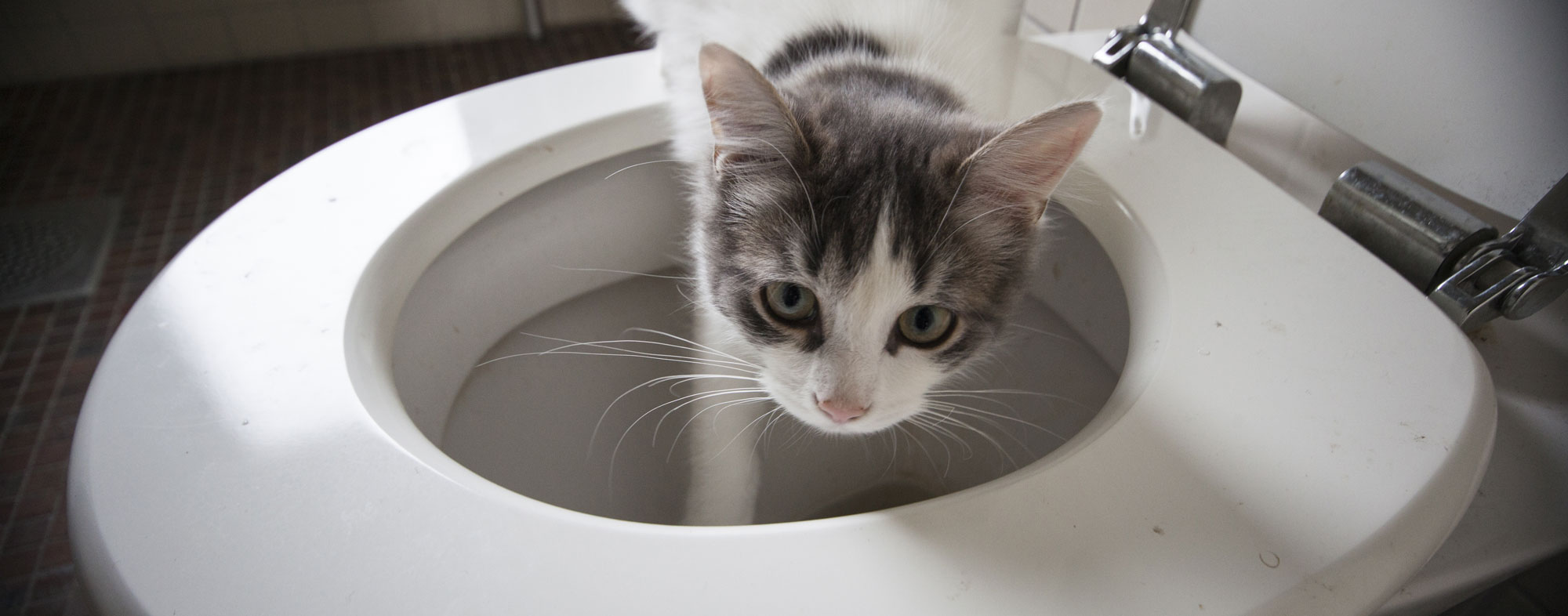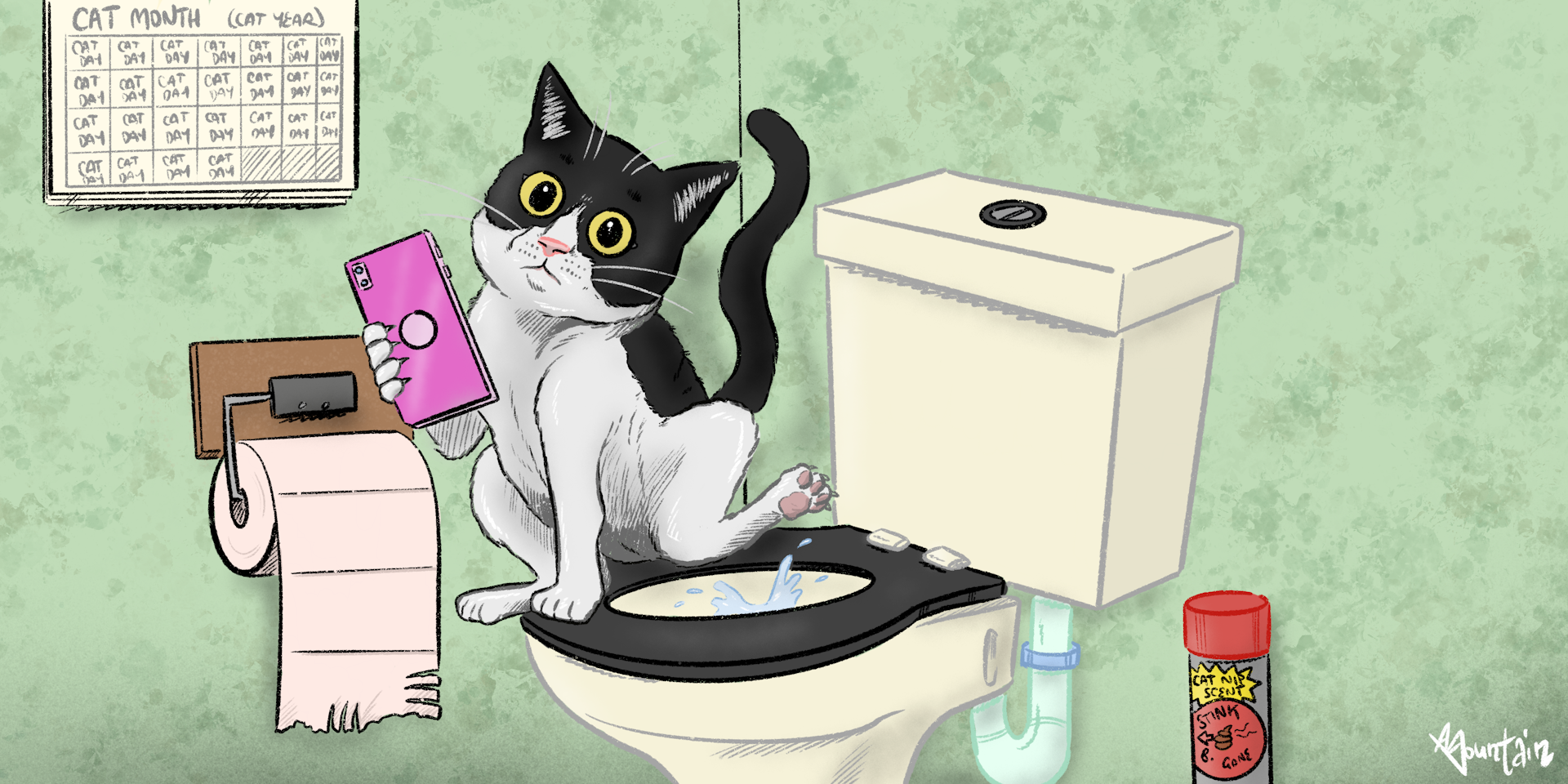Reasons You Shouldn't Flush Cat Poop Down Your Toilet - Maintain Your Pipe System
Reasons You Shouldn't Flush Cat Poop Down Your Toilet - Maintain Your Pipe System
Blog Article
We have discovered the article on How to Dispose of Cat Poop and Litter Without Plastic Bags listed below on the net and felt it made good sense to talk about it with you on this site.

Introduction
As pet cat proprietors, it's essential to be mindful of how we deal with our feline pals' waste. While it may appear hassle-free to flush pet cat poop down the commode, this method can have harmful effects for both the atmosphere and human health.
Alternatives to Flushing
Fortunately, there are more secure and much more liable means to dispose of cat poop. Take into consideration the adhering to choices:
1. Scoop and Dispose in Trash
One of the most usual approach of taking care of pet cat poop is to scoop it into a biodegradable bag and toss it in the trash. Be sure to use a committed litter scoop and take care of the waste promptly.
2. Use Biodegradable Litter
Go with naturally degradable pet cat trash made from products such as corn or wheat. These trashes are environmentally friendly and can be safely disposed of in the trash.
3. Bury in the Yard
If you have a lawn, consider hiding pet cat waste in a designated location away from veggie gardens and water sources. Make certain to dig deep sufficient to prevent contamination of groundwater.
4. Mount a Pet Waste Disposal System
Buy a pet dog garbage disposal system specifically created for pet cat waste. These systems use enzymes to break down the waste, minimizing odor and ecological effect.
Wellness Risks
In addition to ecological concerns, flushing pet cat waste can additionally position health risks to humans. Pet cat feces might include Toxoplasma gondii, a parasite that can cause toxoplasmosis-- a potentially extreme health problem, particularly for expectant women and individuals with damaged immune systems.
Environmental Impact
Purging feline poop introduces unsafe pathogens and parasites right into the water, presenting a substantial danger to marine communities. These impurities can adversely affect aquatic life and compromise water high quality.
Conclusion
Accountable pet ownership prolongs past supplying food and sanctuary-- it likewise includes appropriate waste management. By avoiding purging feline poop down the bathroom and selecting alternative disposal methods, we can decrease our environmental footprint and safeguard human health and wellness.
Why You Should Never Flush Cat Poop Down the Toilet
A rose by any other name might smell as sweet, but not all poop is created equal. Toilets, and our sewage systems, are designed for human excrement, not animal waste. It might seem like it couldn’t hurt to toss cat feces into the loo, but it’s not a good idea to flush cat poop in the toilet.
First and foremost, assuming your cat uses a litter box, any waste is going to have litter on it. And even the smallest amount of litter can wreak havoc on plumbing.
Over time, small amounts build up, filling up your septic system. Most litter sold today is clumping; it is made from a type of clay that hardens when it gets wet. Ever tried to scrape old clumps from the bottom of a litter box? You know just how cement-hard it can get!
Now imagine just a small clump of that stuck in your pipes. A simple de-clogger like Drano isn’t going to cut it. And that means it’s going to cost you big time to fix it.
Parasitic Contamination
Believe it or not, your healthy kitty may be harboring a nasty parasite. Only cats excrete Toxoplasma in their feces. Yet it rarely causes serious health issues in the cats that are infected. Most people will be fine too if infected. Only pregnant women and people with compromised immune systems are at risk. (If you’ve ever heard how women who are expecting are excused from litter cleaning duty, Toxoplasma is why.)
But other animals may have a problem if infected with the parasite. And human water treatment systems aren’t designed to handle it. As a result, the systems don’t remove the parasite before discharging wastewater into local waterways. Fish, shellfish, and other marine life — otters in particular — are susceptible to toxoplasma. If exposed, most will end up with brain damage and many will die.
Depending on the species of fish, they may end up on someone’s fish hook and, ultimately on someone’s dinner plate. If that someone has a chronic illness, they’re at risk.
Skip the Toilet Training
We know there are folks out there who like to toilet train their cats. And we give them props, it takes a lot of work. But thanks to the toxoplasma, it’s not a good idea.

As a person who reads about Don’t flush cat feces down the toilet, I was thinking sharing that piece of content was really useful. Remember to take a moment to distribute this blog post if you enjoyed it. I recognize the value of reading our article about Can You Flush Cat Poo or Litter Down the Toilet?.
Book An Appointment Report this page